<< Previous | Displaying results 326-350 of 6769 for "" | Next >>
Thomas Buergenthal was born in May 1934 in the town of Ľubochňa, Czechoslovakia. His parents, Mundek and Gerda, were Jews who had fled the Nazi rise to power in Germany. In Ľubochňa, Mundek ran a hotel that welcomed other refugees and exiles fleeing Nazi persecution. 1933-39: In 1938-1939, Nazi Germany dismantled the country of Czechoslovakia and created the satellite state of Slovakia. As a result, Thomas and his family fled from Slovakia to neighboring Poland. They hoped eventually to immigrate to…
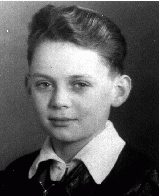
Walter was born to a Jewish family in the German town of Strehlen, 25 miles south of Breslau. His family's crystal business was prominent in the town for more than 100 years. Walter's parents sent him to Berlin in the mid-1920s to learn the porcelain trade. He returned to Strehlen in 1926 to help his family run the business. 1933-39: In 1937 Walter's family moved to Breslau. After the German pogroms of 1938 [Kristallnacht, Night of Broken Glass], he was deported to Buchenwald. When he arrived he was…
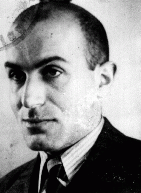
Moishe was born to a Jewish family in the village of Komarovo, which until 1918 was part of the Russian Empire. At 18, he was drafted into the Russian army and fought in World War I. He was captured by the Germans, and while a POW, learned German. After the war he returned to Komarovo, which by then was part of Poland. He supported his family by farming and managing an estate for a Pole from Warsaw. 1933-39: The few Jews of Komarovo got along well with the Ukrainians. Moishe even played the fiddle at…
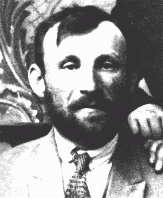
Pola was born to a Jewish family in a small town [in Poland] about three miles from the German border. Her family had lived there for generations. Pola's father exported geese and other goods to Germany; her mother owned a fabric store. They lived with Pola's grandmother in a large, single-level, gray stucco house. Raczki had a small Jewish community with a Hebrew school that Pola attended. 1933-39: In 1937 Pola began secondary school in the town of Suwalki. She excelled in math, and hoped to study…
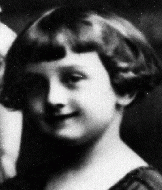
Erich was one of five children born to observant Jewish parents. They lived in Vsetin, a town in Czechoslovakia's Moravia region that straddled the border with Slovakia. Some 70 Jewish families lived in the town of 12,500 persons. There, Erich's family owned a grocery store and operated a sawmill. Erich attended a trade school where he became an expert in lumber and forestry. 1933-39: The Germans kept Erich's family's sawmill operating after they occupied their region in March 1939. Since Erich had a…
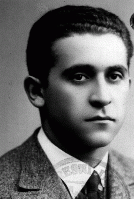
Elias was born in a small town in the hill country of northeastern Slovakia. His family was Jewish, and he grew up in a religious home in which both Yiddish and Hungarian were spoken. His father was a peddler and his mother ran a small general store. Besides attending public schools, Elias received a formal Jewish education and attended Medzilaborce's rabbinical academy. 1933-39: The townspeople were mostly Jewish and worried about Nazi Germany. The German annexation of Austria in March 1938 alarmed them.…
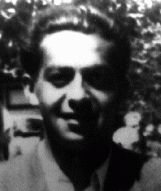
Miso came from a religious family in a small village in Slovakia, where his father was a cattle dealer. He was the eldest of five children. When Miso was 6 his family moved to Topol'cany, where the children could attend a Jewish school. Antisemitism was prevalent in Topol'cany. When Miso played soccer, it was always the Catholics versus the Jews. 1933-39: In 1936 Miso had his bar mitzvah and was considered a man. His grandparents traveled 50 miles for it; he was so happy they were all together. In March…
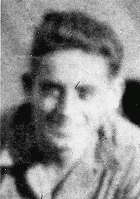
Ruth was a child of middle-class Jewish parents living in Czechoslovakia's capital, Prague, where her father worked as a bank clerk. As native Czechs, her parents considered themselves as much Czech as Jewish. In 1933 Ruth was in her second year at a public girls' secondary school. 1933-39: The Germans occupied Prague in March 1939 and imposed many restrictions. Jews were no longer allowed to attend school, so Ruth's education stopped at age 13. Jews had to surrender many of their possessions such as…
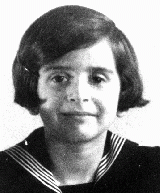
David was born to religious Jewish parents in a small town in Ruthenia, Czechoslovakia's easternmost province, which had been ruled by Hungary until 1918. Located in the Carpathian Mountains, the town was so isolated that news from the rest of the country would arrive by a drummer who would read the news in the town's central square. David's father worked as a tailor and his mother was a seamstress. 1933-39: While David's parents worked, he would be at home having a good time. They had a beautiful home…
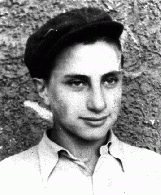
Zdenka was one of four children born to a Jewish family in Kolinec, a southwestern Bohemian town near the German border. Her father was a farmer and a lumber and grain merchant. Situated in the foothills of the Bohemian Forest, Kolinec was surrounded by rolling hills. Zdenka attended business school in the nearby town of Klatovy and, in 1927, moved to Prague with her uncle. 1933-39: Zdenka remembers how worried her mother was about the rise of German antisemitism in 1932. After listening to a radio…
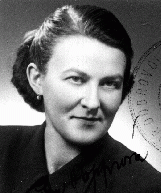
Janka was one of seven children raised in a Yiddish-and Hungarian-speaking household by religious Jewish parents in the city of Kosice. In 1918, when she was 20 years old, Kosice changed from Hungarian to Czechoslovak rule. Three years later, Janka married Ludovit Gruenberger, and their three children were born Czech citizens. 1933-39: Janka was an accomplished milliner, and she helped her husband run a tailoring business from their apartment. Like many Jews in Kosice, Janka and Ludovit were upset when…
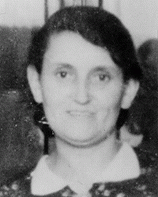
Zuzana was the youngest of three children born to Hungarian-speaking Jewish parents in the city of Kosice. She was the baby of the family, and they called her Zuzi. Her father was a tailor whose workshop was in the Gruenbergers' apartment. 1933-39: In November 1938, when Zuzana was 5, Hungarian troops marched into Kosice and made it a part of Hungary. The Hungarians changed the name of the city to Kassa. The Hungarian government was friendly to Nazi Germany and introduced anti-Jewish laws in…
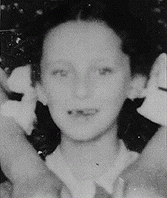
Robert was the son of Jewish parents, Leopold and Florentina Kulka, and was raised in the Moravian town of Olomouc. After completing secondary school, he attended a business school until 1909. He began a business in Olomouc and in 1933 he married Elsa Skutezka from the Moravian city of Brno. The couple made their home in Olomouc. 1933-39: The Kulkas' son, Tomas, was born a year and a day after they were married. In 1937 Elsa's father passed away and the Kulkas moved to Brno, where Elsa and her husband…
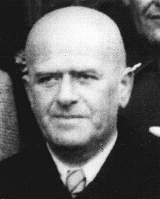
Elsa was the eldest of three children born to Jewish parents in Brno, the capital of Moravia, where her father ran a successful shipping company. In 1920 she graduated from a German-language secondary school. She married and moved to Bratislava, but the marriage was unsuccessful and Elsa returned to Brno in 1926, where she opened a millinery business. 1933-39: On May 24, 1933, Elsa married Robert Kulka and the couple settled in Robert's hometown of Olomouc. Their son, Tomas, was born a year and a day…
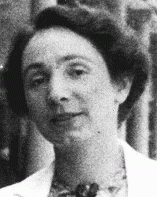
Henry's Jewish parents lived in a Polish town in which their families had lived for 150 years. The Jewish community enjoyed good relations with their Polish neighbors; the local Polish population refused to cooperate when the government encouraged a boycott of Jewish businesses during a wave of antisemitism that swept Poland in the mid-1930s. 1933-39: In the years before Henry was born, his father owned an iron and coal factory. The Germans occupied Wierzbnik on September 5, 1939. While some Jews fled,…
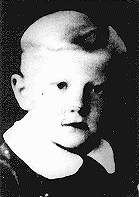
An only child, Freya was born to Jewish parents who lived in a small German town in the Rhine River valley. The Langs owned a successful dry goods business. At this time ready-made clothes were still rare in the countryside. Townspeople and local farmers would purchase fabric at the Lang's store and then take it to their tailor or seamstress to be sewn into a garment. 1933-39: When Freya was growing up, the Nazi party was in power. Many Jews left Germany--Grandmother Lang and one of Freya's uncles sailed…
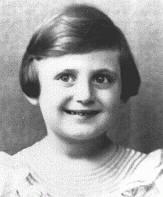
Zofia was born to a Jewish family in Warsaw. Zofia's father, a self-made man who had put himself through university, was a successful banker. The Rapaports lived on a street of single-family homes with gardens. Zofia's room was decorated with yellow lacquered furniture. 1933-39: As a young child, Zofia loved to play with her dog, Chapek. Sometimes she got to go shopping with her mother downtown. Each year during the Jewish holiday of Passover her family visited Zofia's grandparents in Lvov. In late August…
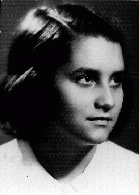
Helene, called Herta, was born to a Russian-Jewish father and a German-Jewish mother in a town on the Main River, near Frankfurt. Her father had immigrated to Germany from Russia in 1890. Her mother had automatically taken on her husband's Russian citizenship when she married. In 1914 Russia and Germany went to war, and Russians living in Germany were considered "enemy aliens." 1933-39: Herta married Siegfried Wohlfarth in 1933 and could change from being "stateless" to taking on his German citizenship.…
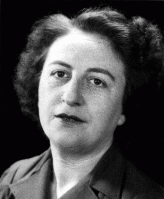
Itka was raised in a Yiddish-speaking, religious Jewish family in Sokolow Podlaski, a manufacturing town in central Poland with a large Jewish population of about 5,000. Itka came from a poor family. After completing her public schooling in Sokolow Podlaski at the age of 14, she began to work. 1933-39: Itka was a young woman, unmarried and living with her parents when war between Germany and Poland broke out on September 1, 1939. German aircraft bombed Sokolow Podlaski's market and other civilian targets…
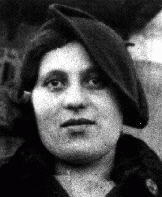
Alida was the oldest of eight children. Her parents, religious Jews, owned a textile business in the small town of Vries. As a teenager, Alida helped her family sell textiles to the local farmers, carrying the goods in a suitcase attached to the handlebars of her bicycle. She married Samuel Wijnberg, and the couple had three sons and a daughter. 1933-39: The Wijnbergs owned and lived in a kosher hotel in the town of Zwolle. It was the only kosher hotel in the region, so many Jewish businessmen and cattle…
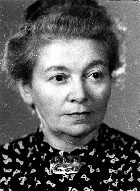
Chava's mother died when she was 2, and Chava went to live with her grandfather, who was a rabbi in the village of Matsiov. Her grandfather's second wife welcomed Chava. After first studying at a Polish public school, Chava attended a Jewish day school. When Chava was a teenager her adopted grandmother died, and Chava took over managing her grandfather's household until he remarried. 1933-39: Chava's grandfather's third wife was an unsympathetic woman. After she came to their home, Chava wanted to be…
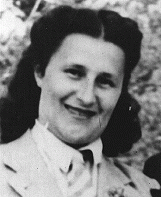
Max's parents, Taube and Itzik, first met as children in 1925. Taube was the daughter of a tailor who hired apprentices in his shop, and Itzik was one such apprentice. The Jewish youngsters fell in love and dreamed of getting married even though Taube's family frowned upon the match. 1933-39: In 1938 Taube and Itzik married. The couple lived in an apartment on 49 Zeromskiego Street in Radom, where Itzik opened a women's tailor shop. Max was born in July 1939. He had curly hair and blue eyes like his…
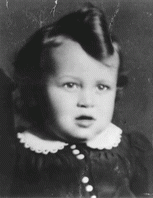
Fruma was one of four children born to a Jewish family in the Polish village of Luczyce. Her parents owned a large farm near the village. In the early 1920s, Fruma married Simcha Perlmutter, a philosophy professor at the university in Lvov, and the couple settled in Horochow. By 1929 the couple had two daughters, Tchiya and Shulamit. 1933-39: In September 1939, as Simcha was arranging for his family to immigrate, Germany invaded Poland. Three weeks later the Soviet Union occupied eastern Poland where…
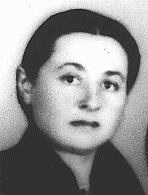
Dora grew up in the industrial city of Radom, known for its armaments industry. Though fervently Jewish, her Yiddish-speaking parents differed from each other in that her mother was deeply religious while her father was not religious and was an ardent member of the Zionist Labor Party. Also known by her Jewish name D'vora, Dora attended Jewish schools and joined a Zionist youth organization. 1933-39: When Dora visited her uncle near the German border in 1936, she first noticed anti-Jewish placards and…
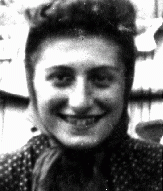
Chaim was raised in a Yiddish-speaking, religious Jewish family in Sokolow Podlaski, a manufacturing town in central Poland with a large Jewish community of about 5,000. The economic activities of most of the townspeople were closely tied to those of nearby Warsaw and surrounding farming communities. As a young man, Chaim liked to play chess and was active in a local Zionist organization. 1933-39: Chaim made a living in the grain business. After settling down, he married a widow who was older than he and…
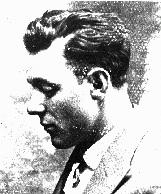
We would like to thank Crown Family Philanthropies, Abe and Ida Cooper Foundation, the Claims Conference, EVZ, and BMF for supporting the ongoing work to create content and resources for the Holocaust Encyclopedia. View the list of donor acknowledgement.